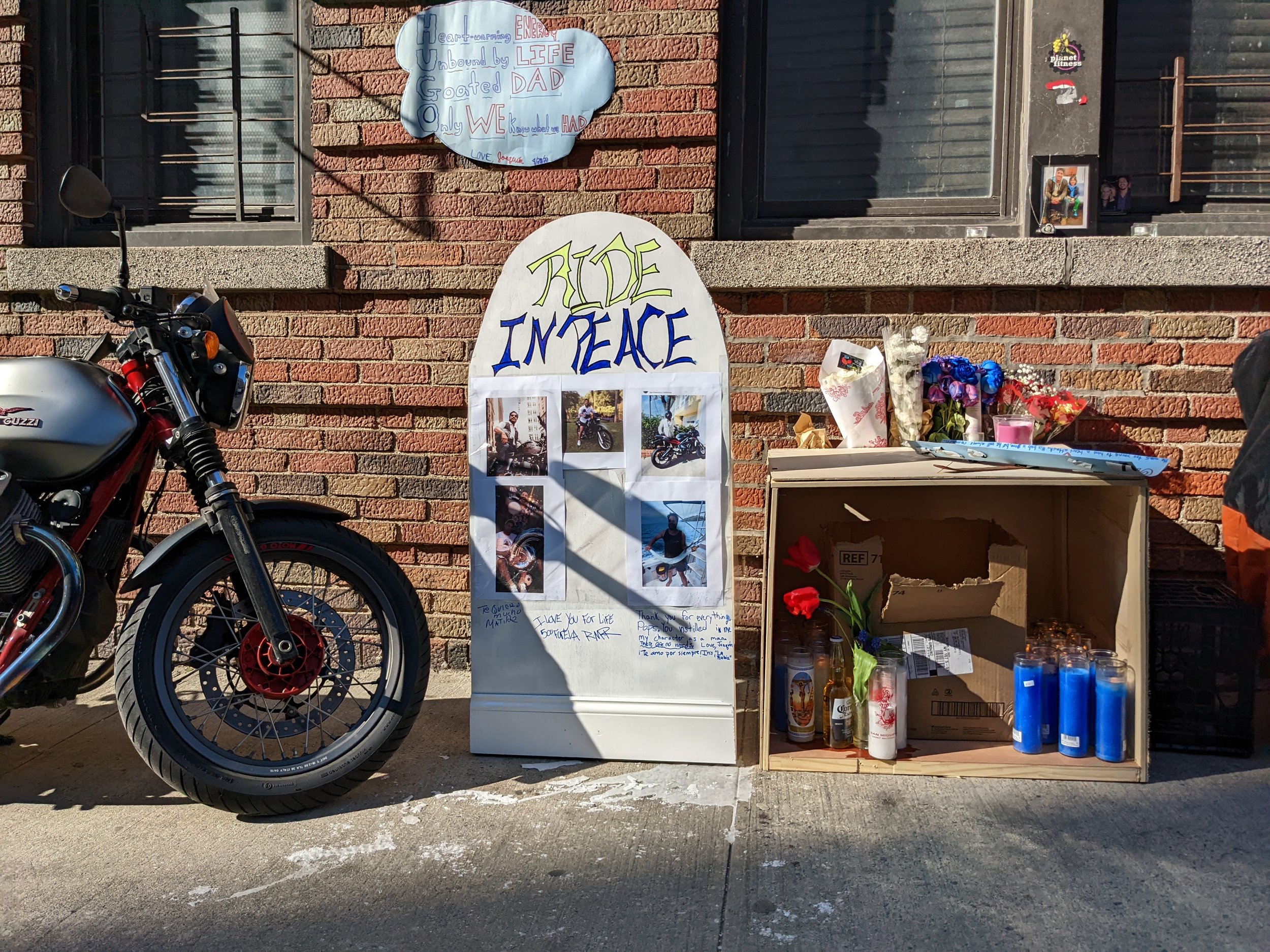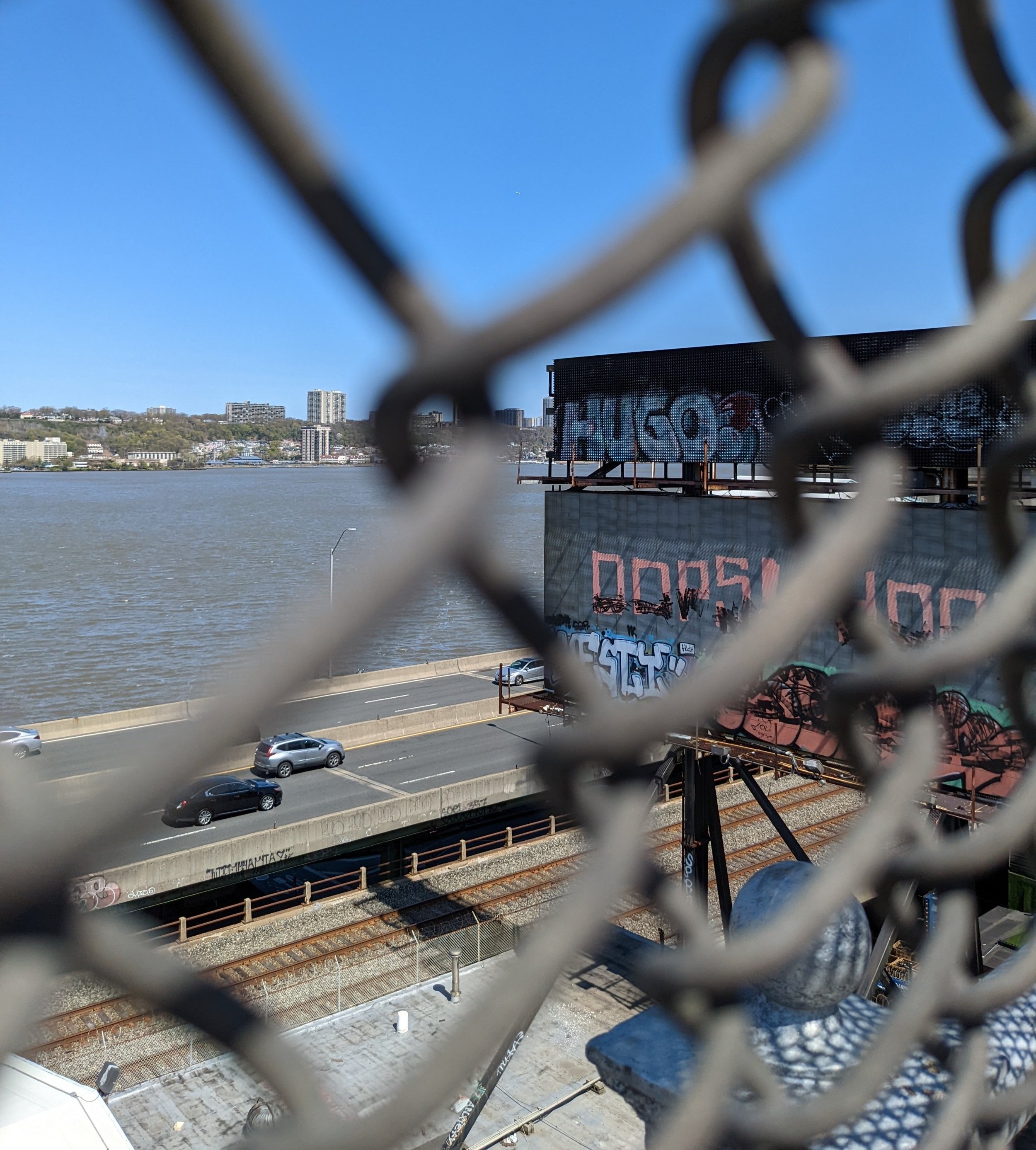Hugo.
We have to stop meeting like this. You, the reader; me, the nihilistic downer of a writer only spurred to pen and paper by pain and loss. Alas, here we are. I’ve thought about why that is, why it takes tragedy in order for me to convert thoughts into characters, words, sentences, pages in any sort of cogent way. I think it’s because casual relationships make for compelling stories. The best memoirs take a small chunk of life and package it into a complete narrative. So what more natural a source than a friendship cut short – with a fixed beginning, body, and ending – to sift through one’s thoughts and draw out insight that taps into universal experience?
It’s fitting then, that a running theme of my friend Hugo’s memorial service was storytelling. He was a master of it, and here is ours: Hugo started as a stranger on Instagram. Having met and helped a friend of mine at a charity ride, he followed our group Instagram account and somehow found his way to me. For months, we interacted one post reply at a time, eventually learning we lived in the same neighborhood. In fact, he met my bike before he met me – sending a picture of it street parked, unchained, uncovered, reminding me to maybe be a little safer with it.
When it was we actually met in person, I’m not too sure. But his warmth and intentionality of connection – toward me and everyone else – immediately won me over. It would grow to give life and energy to all these stories that didn’t occur to me at the time were a core part of him. Stories of riding two-up with his fiancé on a 200cc motorcycle two hours in the snow. Or coasting across the Walt Whitman bridge into Philly without tipping her off that he had run out of gas until he rolled into the station. His excitement when I sent him a tag of his name on a recently stripped billboard – which turned out to be his own handiwork from “simpler times.” The amusement he got from telling people I was the only white person at his birthday party. Many loved ones at the memorial service had stories of their own to tell, tales that reinforced the universal experience we had all shared.
Dominican Americans, particularly the Washington Heights and Inwood variety, celebrate hard. I found out they love and grieve with the same intensity. A sobbing mother will break your heart no matter the circumstances, but when you have a small window into what she has lost, you feel it in your soul. Yesterday and the evening before were rough. But it was worth being there – first, to represent an aspect of Hugo’s life in a way that was appreciated by his family and friends far more than I had expected, and secondly in what I took away personally on his approach to life through those closest to him.
I learned of Hugo’s passion for his students, and saw the impact through one of the first ones, a promising young woman I knew from a local church who I ran into on the way out from the service.
I learned about his faith through his sister, brother-in-law and old-school pastor of another church down the street where I had spent some time supporting food service to the homebound, unaware of the connection.
I heard more from his fiancé about his drive to wring more out of life at every opportunity, whether that was in their relationship, his work, or his engagement with his community.
I took in stories from his friends of his loyalty to those around him, his commitment to being there, even when that meant fibbing a bit on his exact whereabouts and distance to the engagement in question.
And I learned about his love language of roasting from virtually everyone, which made me feel better about my first thought when I heard the sad news, “Dude, I told you to lay off the Smashed burgers.” I swear I felt his laugh.
Blurry screen grabs from our final shared moments. Smiles, hugs, laughter.
A riding philosophy tiff that blew up between Hugo and a similarly gregarious friend created some self-imposed space between him and the group in recent months, but I’m so glad he found his way back to hang and mend that individual connection at a social gathering just days before he would leave us for good. I’ll be participating in the Distinguished Gentleman’s Ride in a few weeks, the event that brought Hugo into my circle last year and one he was excited to return to. While I was looking forward to joining for the first time, to share the road with hundreds of other dressed-to-the-nines enthusiasts on classic-styled bikes to raise money and awareness for men’s health issues, I’ll find so much more meaning in riding in honor of my friend, knowing that the joy he brought to so many will continue to follow us.
Hugo, you’ll forever hold a key place in my New York experience. My first organic Uptown friendship, my first authentically Uptown birthday party, and my first New York City funeral, all within the span of 11 short months. But the bigger impact, though less apparent, will be the lessons I learned from you on how to be a better friend, family member, partner, and neighbor. Thank you for giving me that – I’ll see you on the road.









